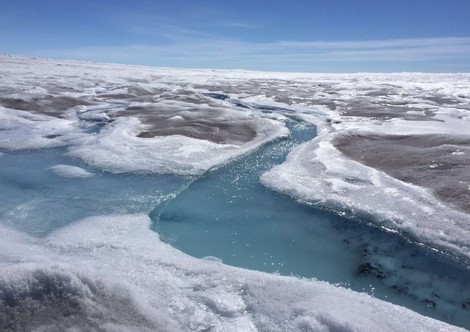Your podcast discovery platform
Curious minds select the most fascinating podcasts from around the world. Discover hand-piqd audio recommendations on your favorite topics.

piqer for: Climate and Environment Boom and bust Global finds
Didem Tali is an award-winning journalist covering international development, gender, displacement and environment issues for English-language media around the world.
A Darker Greenland Is Melting And Raising Sea Levels Faster
The scientific community expressed extreme concerns about the melting ice sheet over Greenland, which can significantly accelerate the sea levels.
Warmer conditions in Greenland, which have been consistently on the rise over the past decades, are encouraging algae to grow and darken the surface. As a result, dark ice absorbs more solar radiation than clean white ice so warms up and melts more rapidly.
Climate change and pollution make Greenland darker, and a darker Greenland melts faster.
"We suspect that in a warming climate these dark algae will grow over larger and larger parts of the Greenland ice sheet and it might well be that they will cause more melting and an acceleration of sea level rise,” said Prof Martyn Tranter of Bristol University.
This biological darkening of Greenland was not something that the scientific community incorporated into research and projections about the climate change. However, having studied this phenomenon, the researchers were surprised about the significance of this darkening.
"Only a small amount has to melt to threaten millions in coastal communities around world," said Dr Joe Cook, a glacial microbiologist at Sheffield University.
The research, led by The Black and Bloom project, funded by the Natural Environment Research Council, will publish new projections for the rise of sea levels in two years.
